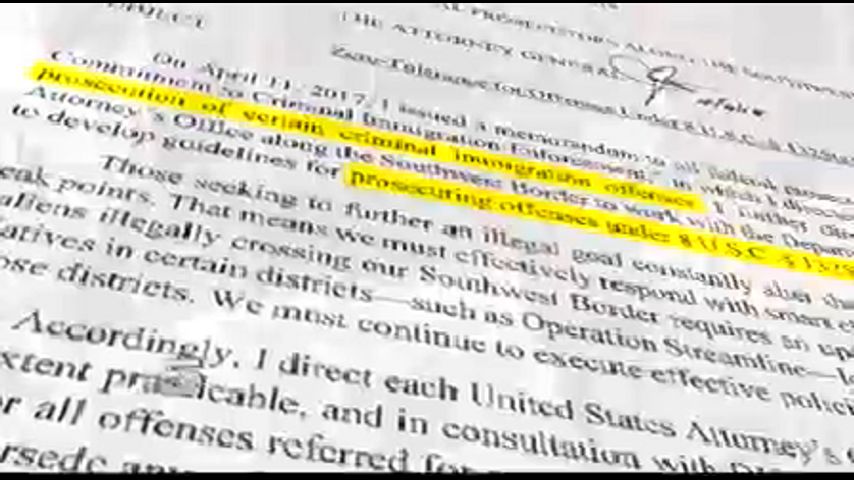Courts Packed Following DOJ ‘Zero-Tolerence’ Memo
MCALLEN – Federal court was packed Monday following the U.S. Attorney General's new "zero tolerance" immigration announcement last week.
A packed courtroom is what you typically find on a Monday morning before Judge Scott Hacker. But this week the court was too full to allow the media inside.
An immigration attorney explains how a memo from the Justice Department could keep the federal docket full.
If a person tries to enter the country illegally and gets caught, they are held by Border Patrol agents or Customs and Border Protection officers.
The U.S. Attorney's Office is then asked whether they will press federal charges and prosecute them. Sometimes they don't.
The DOJ memo, released Friday, is instructing them to take up every case.
Immigration attorney Carlos Diez says he believes it will change things.
"I think it will really put a burden on the courts that are already swamped with cases," he says.
The memo states the move is in response to tactics that exploit weak points.
Diez says apprehensions decreased last year but rose from February to March.
"Although the numbers have gone down, and people are not coming illegally that way as much as they used to in the past, there's still a substantial number of people who will be affected by it," he says.
Taking action on the first attempt to enter illegally into the U.S. could impact recidivism rates – that's when immigrants have more than one illegal entry attempt.
That rate went down from 16 percent of immigrants apprehended in 2013 to about 10 percent last year.
In the Rio Grande Valley, it's a greater problem among Central Americans than Mexican nationals.
Data from 2016 and 2017 shows one Guatemalan alone registered 29 illegal entries. This number of times they attempted to enter will matter when it comes to sentencing.
Under federal charges, an immigrant can face up to six months in prison for their first illegal entry charge.
More attempts will result in longer sentences. Add in past criminal histories, and that can grow up to 20 years.
"If anybody was thinking about coming illegally through the United States, I think the word should be is that you should not come illegally through the United States," the attorney emphasized.
He adds busier courts could mean a stress on resources.
The policy encourages U.S. Attorney Offices to identify and request resources as needed.
Central Americans and others who request asylum are tried in immigration court, a civil matter not affected by this policy.




